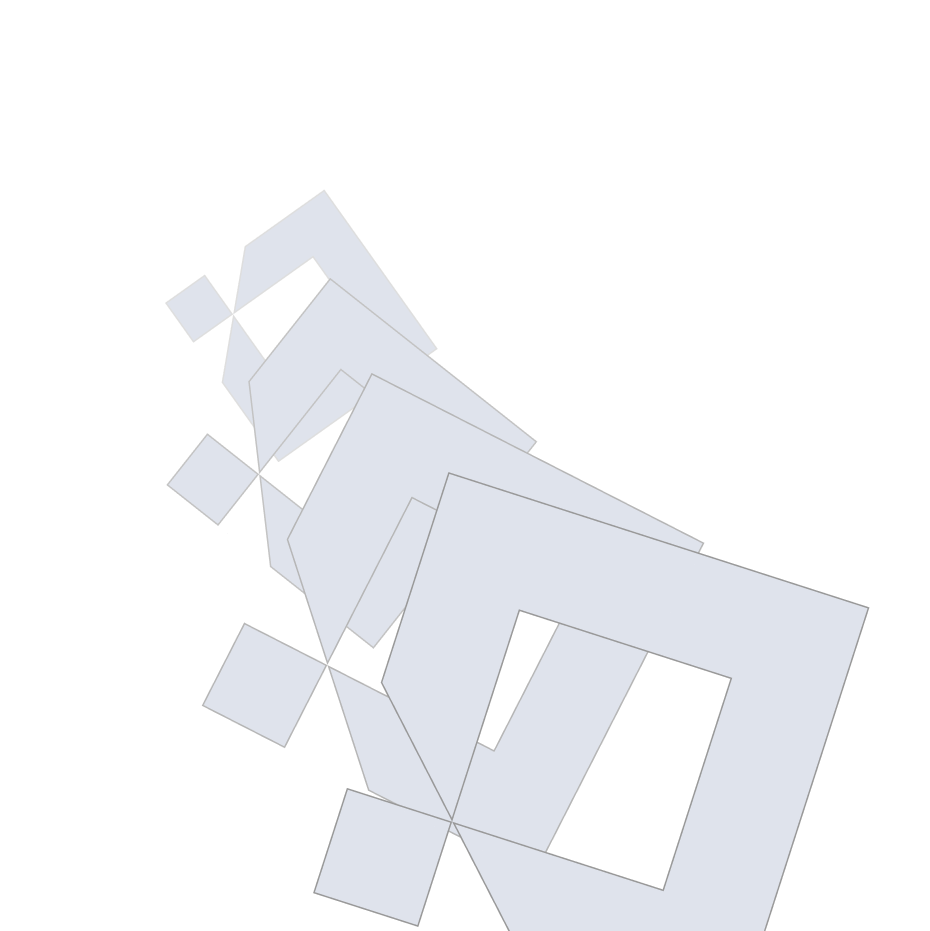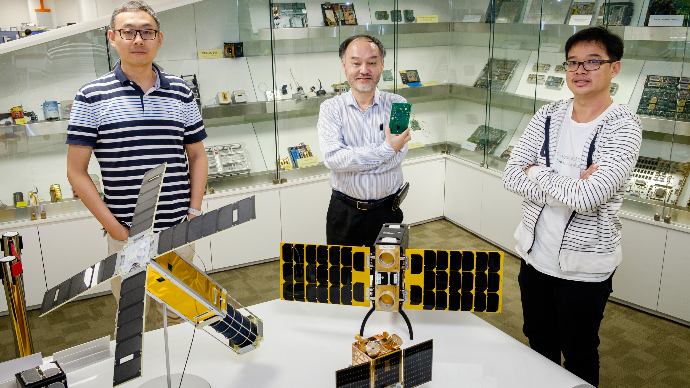(L-R) Zero Error Systems’s co-founders Dr Wei Shu, Prof Joseph Chang, and Dr Kwen Siong Chong
According to the European Space Agency’s space debris office, hundreds of millions of objects of different sizes, ranging from 1 mm to 10 cm, formed due to satellite collisions, exist in Earth’s orbit. Each one of these objects creates more debris by clashing further and poses a serious threat to space missions. When Wei Shu, a research scientist at the Nanyang Technological University (NTU), conducted extensive research into this phenomenon, it became clear to him that extending the lifetime of satellites is the only way to avoid future collisions and debris.
So, in 2019, he joined hands with his NTU professor Joseph Chang and Dr Kwen Siong Chong, to embark on a journey to achieve this mission. This motivated the trio to launch Zero-Error Systems (ZES)
“Extending the lifetime of satellites can be achieved by ensuring the power reliability and data integrity of satellites in all operating environments,” ZES co-founder and CTO Shu told e27. “This is what Zero-Error Systems does.”
Based in Singapore, Zero-Error Systems provides semiconductor integrated circuits and solutions to enable and enhance radiation hardening and ultra-low soft error capabilities of electronic circuits. Its patented, radiation-hardened solution safeguards commercial off-the-shelf (COTS) semiconductor devices, which are not designed to withstand the harsh conditions in outer space. The startup’s mission is to extend the lifespan of satellite subsystems, rovers and other devices.
“There are two primary methodologies for achieving radiation hardening: radiation hardening by process (RHBP) and radiation hardening by design (RHBD). RHBP was the dominant approach in the past as it is fundamentally effective in mitigating radiation. However, it is incompatible with commercial processes, and it is expensive and old-fashioned,” Shu explains.
RHBD, a low-cost and high-performance solution
RHBD is now the prevalent tech which relies entirely on low-cost, high-performance commercial processes. “We achieve RHBD first by designing radiation-hardened integrated circuits (ICs) using solely circuit and physical designs and then employing these ICs to protect other COTS components from radiation. The RHBD approach enables nearly all advanced COTS into space, significantly advancing the space industry,” he adds.
According to Shu, ZES’s RHBD approach is probably the most optimised approach as it achieves comprehensively effective radiation hardening with minimum overheads and effort by directly hardening COTS components against radiation.
“Our solution offers substantially lower cost and higher performance when compared to the adoption of radiation-hardened yet expensive and low-performance ICs. The high performance is achieved by allowing the adoption of advanced COTS ICs. The total solution cost is at least one order of magnitude lower than the traditional radiation-hardened IC solution,” he claims.
ZES has collaborated with various partners globally, including in Europe where its solution has been implemented into OneWeb satellite and it now functions in space.
In addition to the space industry, RHBD has potential in the automotive industry, particularly in level-4 and level-5 autonomous vehicles. “High-level autonomous vehicles, which rely on edge computing, require a very high level of data integrity. Zero-Error Systems’s RHBD technology can tackle this issue,” Shu claims.
The startup generates money from semiconductor component sales, non-recurring engineering fees for customised solutions, and intellectual property (IP) license and royalty fees.
In 2019, ZES raised US$2.4 million in seed round funding. In June 2023, it went on to secure another US$7.5 million in Series A round from Airbus Ventures and Dart Family Office.
With over 20 staff members, Zero-Error Systems has built a market presence across three continents – Asia, Europe, and North America.
Singapore is still a small market
Shu opined that while Singapore’s space ecosystem has grown in recent years, it is still small compared to matured economies like the US, Europe, Japan and China. Hence, ZES needs to explore overseas markets to gain flight legacies, brand traction, and business.
“Being a Singapore startup, it is difficult to make ourselves known in a foreign land, especially when ZES is competing with big semiconductor players that have been in the space industry for decades. So, we need to present its scientific findings, exhibit our solutions at top international conferences, and engage strategic foreign partners to promote, sell and participate in mega space projects funded by foreign space agencies,” Shu remarks. “The other challenge is hiring engineering talents for deep-tech startups in Singapore. We are always competing with MNCs in the same talent pool.”
Also Read: Silicon Box’s Business Head on how chiplet architecture transforms semiconductor scalability
Shu further adds that Space, the final frontier for humanity, is poised for accelerated growth in the years ahead, and ZES aspires to be a pivotal player in this cosmic journey. “Our current solutions deliver substantial advantages across diverse space applications, and we aim to establish them as global industry standards. Simultaneously, we are actively bolstering our product portfolio with groundbreaking innovations to meet the evolving demands of the space industry.”
In an era where space debris poses a growing threat to satellite operations, Zero-Error Systems emerges as a beacon of innovation, striving to extend the lifespan of vital space infrastructure. As humanity ventures further into the cosmos, ZES stands ready to safeguard the final frontier for generations to come.
—
X marks Echelon. Join us at Singapore EXPO on May 15-16 for the 10th edition of Asia’s leading tech and startup conference. Enjoy 2 days of building connections with potential investors, partners, and customers, exploring innovation, and sharing insights with 8,000+ key decision-makers of Asia’s tech ecosystem. Get your tickets here.
Want more from your Echelon experience? Be an Echelon X sponsor or exhibitor. Send enquiry here.
This article was first published on March 11, 2024


